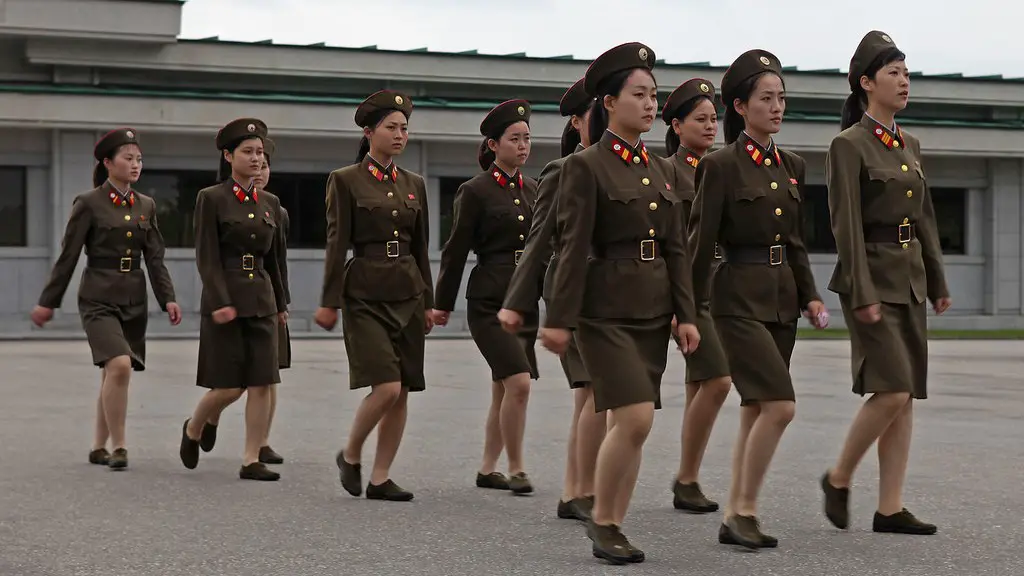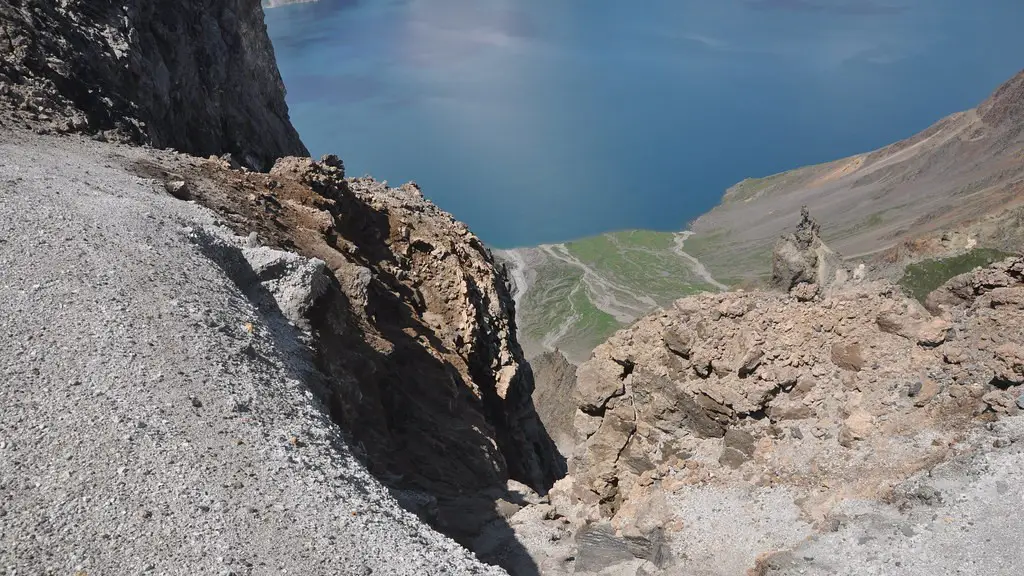What is North Korea
North Korea is a state in East Asia, located on the northern half of the Korean Peninsula. North Korea shares borders with China to the North, Russia to the Northeast and South Korea to the South. It is located across the Korean Strait and the Sea of Japan. North Korea is a one-party state – the ruling party is the Workers’ Party of Korea (WPK) which controls all aspects of North Korean society and politics. North Korea is also known as one of the most closed and oppressive states in the world, with a highly repressive regime that limits and restricts civil liberties.
Reasons for Intervention
There are numerous reasons why the international community should intervene in North Korean affairs. Firstly, the North Korean government is one of the most oppressive in the world and severely restricts civil liberties, with reports of widespread human rights abuses and reports of torture, forced labour and public executions. Secondly, the North Korean regime is heavily militarized with nuclear weapons and ballistic missiles believed to be a threat to regional security. Thirdly, the North Korean nuclear programme exacerbates tension in the region which could lead to a potentially devastating conflict. Lastly, North Korea has one of the worst poverty rates in the world, and the North Korean people face food shortages, lack of access to basic medical services, and widespread malnutrition.
What Can be Done
In order to effectively address the complex situation in North Korea, the international community should pursue a multi-pronged approach. Firstly, international diplomatic efforts should be increased in order to build bridges between North Korea and its neighbouring countries with the aim of reducing conflict and establishing a peace treaty. Secondly, targeted economic sanctions should be imposed in order to limit North Korea’s ability to fund its nuclear programme and further militarize its borders. Thirdly, the US and its allies should engage in humanitarian aid programmes in order to provide the North Korean people with basic necessities such as food, medical supplies and sanitized water. Lastly, the international community should strongly advocate for improved human rights conditions in North Korea and increase pressure on the North Korean government to respect the human rights of its people.
Challenges of Intervention
Intervening in North Korea is not without its challenges. Firstly, the North Korean government is highly secretive and resistant to outside pressure and foreign interference. Secondly, any military intervention could lead to a devastating conflict with potentially catastrophic consequences. Lastly, the North Korean people have become desensitized to the oppressive conditions, making it difficult for the international community to effectively engage with them.
US Sanctions and Reactions
The US has imposed numerous economic sanctions on North Korea to discourage it from developing its nuclear programme and further militarizing its borders. These sanctions have had mixed reactions. On one hand, the sanctions have put considerable pressure on the North Korean government, leading it to negotiate with the US on the denuclearization of the peninsula. On the other hand, the sanctions have had a devastating effect on the North Korean people, leading to food and medical shortages and further exacerbating the already dire economic and humanitarian conditions.
The World’s Response
The international community’s response to the North Korean situation has been mixed. The UN has called for an end to the North Korean nuclear programme, and has imposed numerous economic sanctions. China, a long-term ally of North Korea, has also made efforts to persuade the North Korean government to engage in dialogue and reduce its military activities. Regional powers such as South Korea and Japan have strongly advocated for improved human rights in the country, and have expressed alarm about the North Korean government’s aggressive militarism.
The Big Picture
The North Korean situation highlights the need for the international community to take a proactive role in the maintenance of global security and stability. North Korea presents a unique challenge as it is believed to be one of the most oppressive and closed regimes in the world. It is clear that decisive action must be taken to address the complex political, economic and humanitarian situation in North Korea and to prevent a potentially catastrophic conflict in the region.
Regime Change
One way to potentially address the issue of North Korea is through regime change. This is the idea of replacing the current North Korean government with a new democratic one that respects the rights of its citizens and is committed to peace and stability in the region. While this is a popular opinion amongst the international community, it is not without its risks. There is a concern that a new regime may be even more oppressive, leading to further instability in the region. Furthermore, it is unclear how a regime change would be implemented in a peaceful and democratic manner, as North Korea is likely to resist attempts to overthrow its government.
Economic Engagement
Another way to potentially address the North Korean situation is through increased economic engagement. This is the idea of providing economic benefits in exchange for North Korea reducing its military activities and opening up its borders to the international community. It has been suggested that increased foreign investment in North Korea could bring much-needed jobs and improved economic conditions. However, there is a concern that increased economic engagement could make North Korea even more reliant on foreign aid and give the North Korean government more resources to expand its military activities.
Humanitarian Aid
Humanitarian aid is another way of potentially addressing the North Korean situation. This is the idea of providing food, medicine, and other basic necessities to the North Korean people. Humanitarian aid could help alleviate some of the suffering of the North Korean people and bring much-needed relief to an oppressed population. However, there are concerns that the North Korean government might misappropriate the aid and the international community has been hesitant to provide large-scale humanitarian aid without the assurance of it reaching the people in need.
Improving Human Rights
The international community should also focus on improving human rights conditions in North Korea. Human rights organizations have long reported of systemic and widespread human rights abuses in the country, such as torture, arbitrary imprisonment and lack of access to basic medical services. The international community should increase pressure on the North Korean government to respect the human rights of its people and improve conditions in the country. However, this is a difficult task as the North Korean government is resistant to outside pressure and foreign interference.


